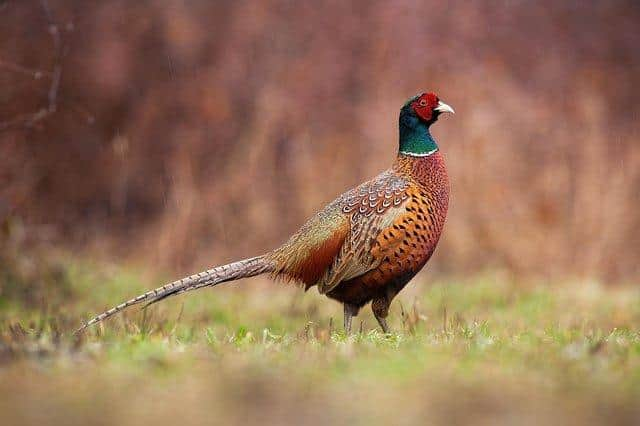Bird Flu: UK-wide alert after cases detected at Scottish poultry farm
and live on Freeview channel 276
The chief veterinary officers of Wales, England and Scotland have declared that it will be a legal requirement for all bird keepers in Great Britain to follow strict biosecurity measures to help protect their flocks.
In a joint statement, the chief veterinary officers said: “Following a number of detections of avian influenza in wild birds across Great Britain we have declared an Avian Influenza Prevention Zone (AIPZ ) across the whole of Great Britain.
Advertisement
Hide AdAdvertisement
Hide AdEarlier, the Scottish Government confirmed that bird flu has been detected in a flock of captive birds in Angus but refused to divulge the exact location.


In a statement, the Scottish Government said: “A flock of kept birds in the Angus constituency have tested positive for avian influenza (H5N1).
“In order to limit the further spread of disease, appropriate restrictions have been imposed on the premises.
“The remaining birds at the premises will be humanely culled and three kilometre and 10 kilometre Temporary Control Zones have been set up around the infected premises to limit the risk of the disease.
Advertisement
Hide AdAdvertisement
Hide Ad“Within these zones, a range of different controls are now in place. These include restrictions on the movement of poultry, carcasses, eggs, used poultry litter and manure.”
“This means that all bird keepers must take action now to prevent the disease spreading to poultry and other domestic birds.”
Keepers with more than 500 birds will need to restrict access for non-essential people on their sites, and workers will have to change their clothing and footwear before entering bird enclosures.
All site vehicles must also be cleaned and disinfected regularly to limit the risk of the disease spreading. It is not clear which species of bird has been affected by the cases in Angus, an area popular with game breeders. Duck, geese, chickens and turkeys are also reared commercially on a number of farms in the district.
Advertisement
Hide AdAdvertisement
Hide AdThe chief veterinary officers said: “Whether you keep just a few birds or thousands, you are now legally required to introduce higher biosecurity standards on your farm or small holding.
“It is in your interests to do so in order to protect your birds from this highly infectious disease.”
In February this year the discovery of a strain of "highly pathogenic" avian flu at a Scottish farm has prompted a warning that people should avoid touching dead birds in the wild.
Avian influenza circulates naturally in wild birds who migrate to the UK from mainland Europe over the winter where the disease can spread to poultry and other captive birds.
Advertisement
Hide AdAdvertisement
Hide AdOwners with smaller numbers of poultry – including chickens, ducks and geese – are also being told to take steps to limit the risk of the disease spreading to their animals.
UK agencies have stated that the risk to public health from the virus is very low.
Food standards agencies also say that avian influenzas pose a very low safety risk for UK consumers.
They add that properly cooked poultry and poultry products – including eggs – are safe to eat.
A message from the Editor:
Thank you for reading this article. We're more reliant on your support than ever as the shift in consumer habits brought about by coronavirus impacts our advertisers.
If you haven't already, please consider supporting our trusted, fact-checked journalism by taking out a digital subscription.
Comment Guidelines
National World encourages reader discussion on our stories. User feedback, insights and back-and-forth exchanges add a rich layer of context to reporting. Please review our Community Guidelines before commenting.